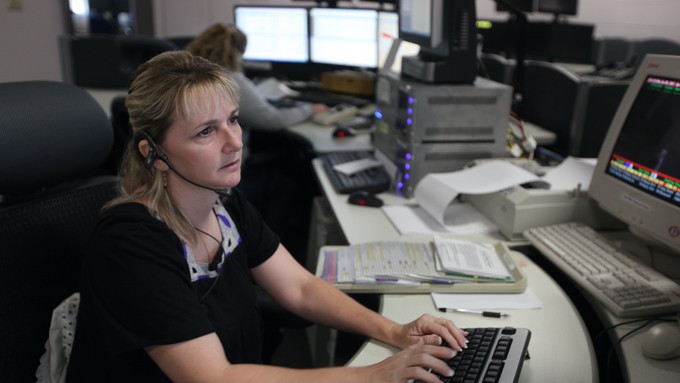Find help from these websites, telephone hotlines and organizations

Feeling blocked? These mental health organizations can help. Laong Shutterstock.com
In November of 2021, Santa Cruz County’s Office of Education and Behavioral Health Division received a $4 million grant to improve access to mental health treatment for youth. A much needed resource during pandemic times, mental health resources were already lacking in the region. According to Lookout Santa Cruz, Michael Paynter, Santa Cruz County Office of Education’s executive director of student support services, recently said, “This [grant] was not based on a reaction to the pandemic. This was based on this issue already existing. I think everything is still true, it’s only gotten more extreme.”
The need for mental health services in Santa Cruz County reaches beyond young people. The county struggles with a significantly sized homeless population, and organizations are working to better treat the mental health of these unhoused residents. Further, adults and families from all walks of life sometimes find themselves in crisis. Fortunately, while Santa Cruz County works to improve its resources, there are still some active and available services.
The National Alliance on Mental Illness has a chapter in Santa Cruz. Visiting the website, these are first words one sees: “Hope. Inclusion. Empowerment. Compassion. Fairness.” It is with this motto in mind that NAMI Santa Cruz County offers a wide variety of services, including support groups, warm lines, and speaking events. The website also offers links to information in Spanish. NAMI resources include the following, plus a lot more.
NAMI Peer Connection Recovery Support Group—For adults living with mental illness who wish to share and support each other, this group is an ideal starting point. There are both daytime and evening options to accommodate as many schedules as possible.
NAMI Family Support Group & Classes—NAMI offers several parent support groups, including:
Other Community Support Groups—NAMI provides a wide variety of support groups for those struggling with specific issues.
Mental Health Client Action Network is a peer-run organization that is a self-described “clean and sober mental health community center that welcomes all people diagnosed with mental health issues like schizophrenia, bipolar disorder or major depression.” The group offers showers and laundry services for unhoused and low-income individuals, and organizes support groups for everyone regardless of life situation. As stated on the network’s website: “What we have in common is that we are all mental health peers—or have been—and although we all have differing experiences, many of us know what it’s like to be medicated, to be hospitalized, to hear voices, to want to end our lives, to want to begin again—perhaps in a single day—and we know what it’s like to be ourselves, in this sometimes cookie-cutter world, to be different.”
Some examples of the network’s weekly offerings:
The Behavioral Health Division of Santa Cruz County provides a wide range of prevention and treatment options for Santa Cruz County adults, children and their families. In order to receive services through the county, a resident should contact the Mental Health Access Team. The team evaluates all non-emergency mental health situations, and is equipped to handle a diverse population, including senior and bilingual services. These clinicians and psychiatrists provide assessments and referrals to quickly determine eligibility so clients can receive the help they need.
The Access Team can be reached at (800) 952-2335, 24 hours a day. Walk-in crisis services are also available Monday-Friday 8 a.m.-5 p.m. at 1400 Emeline Ave., Bldg. K, Santa Cruz.
Encompass Community Services provides a wide array of resources and support for young people and their families. The organization accepts Medi-Cal. Services include the following:
Child and Adolescent Behavioral Health Services works with youth who have moderate to severe mental health and behavioral needs, and are Medi-Cal eligible. Some of the children served have struggled enough to be at risk of out-of-home placement. Instead of merely stand-alone counseling, this department partners with both the youth and their families to individualize goals and services. Some services include:
Walnut Avenue Family & Women’s Center provides support and services for women and children, with a special focus on domestic abuse. Those who attend will learn how to navigate healthy relationships, assess risk, develop self-esteem and receive opportunities to grow their emotional, mental and spiritual health. Teens who are in an abusive relationship are also permitted to receive services without parental consent.
The Diversity Center of Santa Cruz offers events and therapeutic support groups for all LGBTQ+ demographics, including special emphasis on the trans community. The center has ongoing virtual support groups, and services focus on creating connections, building community, and reducing isolation among LGBTQ+ seniors, veterans, youth, and the Latinx community.
The Santa Cruz County Vet Center offers confidential assistance to veterans and their families. Some of the services offered include the following:
Black UC Santa Cruz students are invited to join Black Minds Matter, a division of the university’s Counseling & Psychological Services. Services include the following:
Sometimes when an individual is struggling with mental health, it can seem daunting to attend a support group or reach out in person. For those times, there are many different hotlines where help can be reached any time.
NAMI Help Line—(831) 427-8020, ext. 7.
Second Story—(831) 688-0967. 24-hour peer support line for those struggling with mental health issues.
Peer-Run Warm Line—(855) 845-7415. This line is run out of San Francisco but serves Santa Cruz County residents as well. There also is an online chat option.
National Suicide Prevention Helpline—(800) 273-8255.
Crisis Suicide Prevention Line—(877) 663-5433.
Mental Health Services Call Center—(800) 704-0900.
Behavioral Services Hotline—(831) 454-4170.
Family Service Agency of the Central Coast - 1-877-663-5433 (ONE LIFE).
There are many targeted support groups available to residents of Santa Cruz County who are struggling with mental health challenges.
Attention Deficit/Hyperactivity Disorder Support Group for Parents of Children & Teens with ADHD—Email santa-cruz@chadd.net for information.
HOPE Bipolar Disorder and Depression Support Group—(831)-336-5740
Family Grace at Twin Lakes Church—(831) 465-3368
Women’s Expressive Art Therapy Group—(831) 704-9603
Foresight Mental Health—(831) 215-3328
Parent/Friends of People With Unique Perceptions—(831) 244-1301
Dual Recovery Anonymous—(831) 768-8132, ext. 306 (Watsonville).
Nar-Anon—(831) 291-5099 (Aptos and Santa Cruz).
Bodhi Addiction Treatment and Wellness—(855) 297-0166 (Capitola).
ALTO Counseling Center—(831) 427-5290 (Santa Cruz).
Parents with Hope—(831) 688-1792 (Soquel).
Compassionate Friends—(831) 332-9893.
Wings—(831) 459-9373; (831) 430-3000.
Hospice of Santa Cruz County—(831) 430-3000 or email griefsupport@hospicesantacruz.org.
As of July 2022, people who are experiencing a mental health crisis and are in need of immediate help can call 988, the new three-digit dialing code, to access the National Suicide Prevention Lifeline. Advocates pushed for new three-digit number as an alternative to calling 911, which can result in police intervention rather than medical care. The number should be easier to remember for people in crisis. Read more about both 988 and 911 in the story below.
